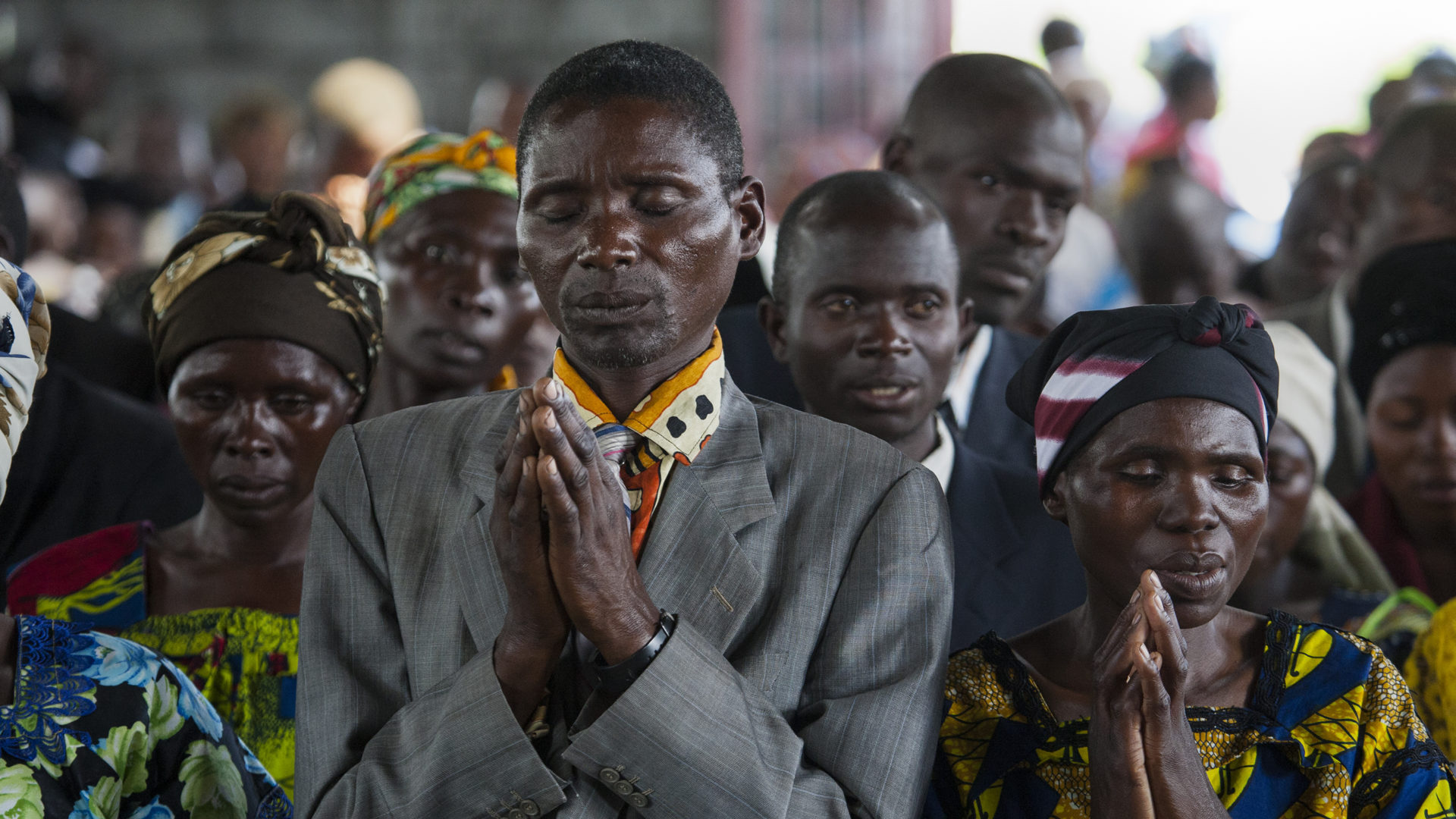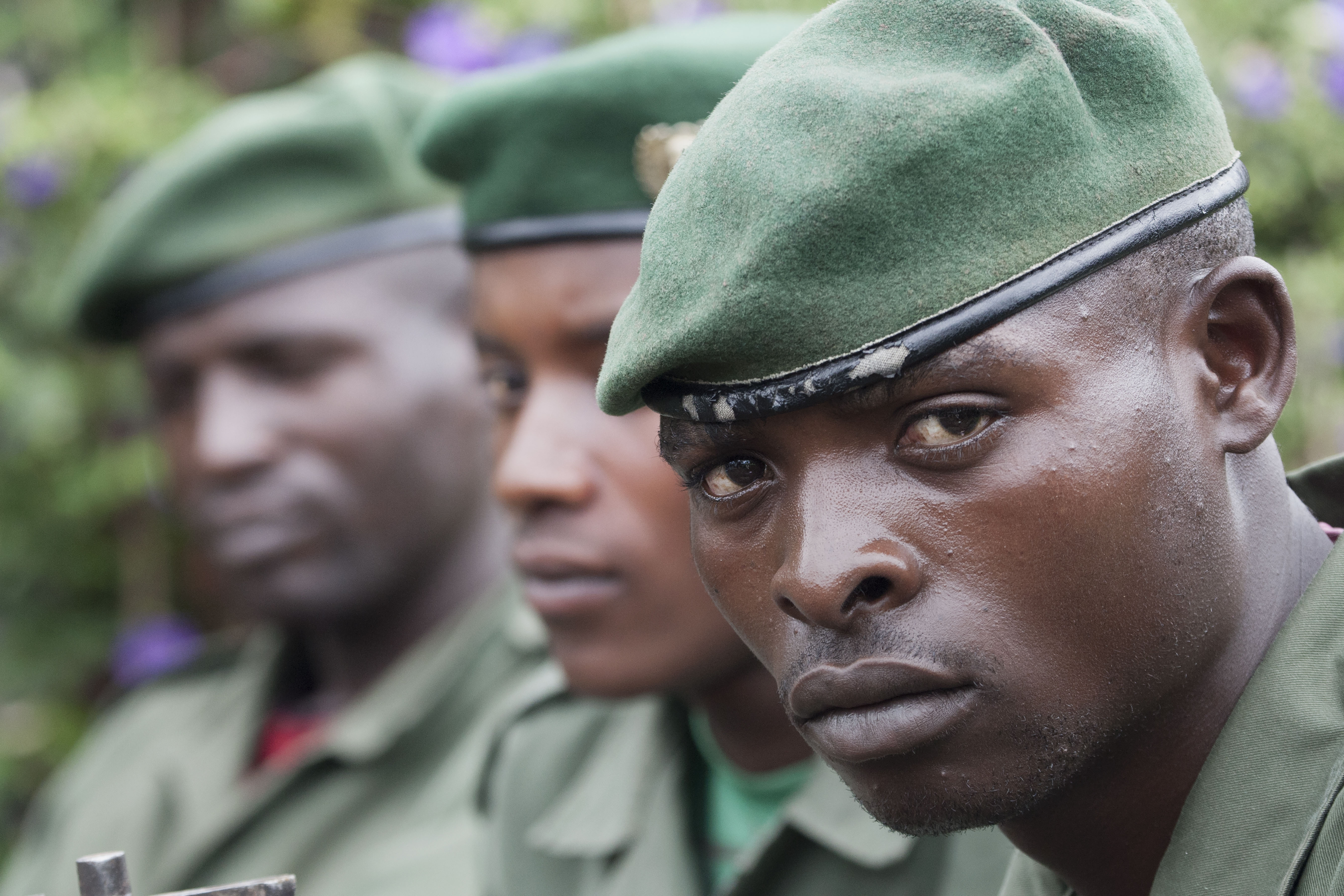
A fragile calm rests over Kinshasa, capital of the Democratic Republic of the Congo. For months government forces and supporters of the opposition have clashed, leaving over 150 people dead in Kinshasa and other parts of the country. The presidency of Joseph Kabila ended December 19, 2016. He refused to step down, however, and he refused to hold elections. The people were not happy about that.
“When the relationship with government is tense and fragile, the church in the Democratic Republic of the Congo gives us four examples of how Christians can be involved.”
Minutes before 2016 ended and 2017 began, government and opposition leaders signed an agreement, ushering in this fragile peace. The agreement calls for elections by the end of 2017, as well as for Kabila to remain president until elections are held and for the opposition to select a prime minister now.
An Eye for an Eye and a Tooth for a Tooth
While the current political conflict is predominant in the west, central, and southern parts of the country, a decades-old civil war continues to rage in the east, where over five million lives have been lost. Rebel forces battle the government for control of the mineral- and agricultural-rich land. The people are often caught in the crossfire, suffering at the hands of both sides as indiscriminate carnage is wrought by ordinary Congolese. Missionaries, international aid workers, and apolitical locals have been brutally massacred.
For generations, the Congolese have lived by the law of vengeful retaliation—“an eye for an eye, and a tooth for a tooth.” Jesus, however, taught his disciples to turn the other cheek, give the thief your coat, and walk the extra mile (Matt. 5:38–41). He went on to say, “Love your enemies and pray for those who persecute you” (v. 44). Does Jesus’s teaching apply to Christians in the Congo who have suffered at the hands of authoritarians and equally at the hands of dissenters?

I’ve talked with various Congolese soldiers who committed heinous atrocities against their people and later became Christians. Even in Christ they don’t feel a total sense of forgiveness. I’ve also talked with victims of such atrocities, Christians who struggle to forgive.
One pastor in Kinshasa recently saw people gunned down in his neighborhood. He churns inside, wanting to see a change in government. He believes the current political unrest is the only possible outcome of the tension between the people and a government they feel is oppressive, corrupt, and unfair. He knows, however, this is ultimately in the hands of God.
The Role of the Church
When the relationship with the government is tense and fragile, the church in the Democratic Republic of the Congo gives us four examples of how Christians can be involved.
Pray
Pastors, missionaries, and Christian aid workers are united in their plea for prayer. The Église du Christ au Congo, a national umbrella organization for ninety-five denominations in the county, has put into place a prayer chain for the nation and elections. Every third Saturday of the month throughout 2017 is designated as a day of prayer.
Believe and Obey the Word of God
All are also in agreement that knowledge and application of the Word of God are vital. Scripture can teach us five things about governments:
- Every government is established by God.
Both Jesus and the apostle Paul teach that God has all authority. He is ultimately in control of all governments, and God grants any authority a government may have (John 19:11; Rom. 13:1b). - God uses sinful governments to do his will.
In Isaiah 45:1–13, Jeremiah 25:8–9, and Acts 4:27–28, God used ungodly governments to carry out his will and purposes—even putting Jesus to death on a cross. - We ought to pray for those who govern us.
In 1 Timothy 2:1–2, Paul instructed the church to pray “for kings and all who are in high positions, that we may lead a peaceful and quiet life, godly and dignified in every way” (ESV). - We should honor and submit to those who govern us.
Jesus said, “Render to Caesar the things that are Caesar’s” (Mark 12:17 ESV). Paul said, “Let every person be subject to the governing authorities. For there is no authority except from God, and those that exist have been instituted by God” (Rom. 13:1 ESV). - All governments will end, and Jesus will reign forever.
The prophet Isaiah so beautifully said that Jesus is King of kings and Lord of lords, and he shall reign forever (Isa. 9:6–7), while the writer of Revelation said ultimately God will strike down the nations and rule over his people (Rev. 19:11, 15–16).
Get Involved in the Political Process
One church leader in Kinshasa encourages “godly, smart, and honest church members” to prayerfully accept and follow the peace process, be active participants in establishing voter rolls, help get citizens out to vote, and even run for office at the local level.
Engage in Social Action
In times when governments seem to be failing the people, the church can share a holistic gospel that helps meet physical as well as spiritual needs (Micah 6:8; Isa. 1:17). Jesus exemplified this in his ministry and his teachings—free the prisoners, feed the hungry, heal the sick, care for the widows and orphans.
Prayer for continued peace and the healing of the emotionally and spiritually battered is vital in this conflict-plagued country. If the fragile accord doesn’t hold, many fear more violence. God’s Word is reassuring, however: “The Lord has established his throne in the heavens, and his kingdom rules over all” (Ps. 103:19 ESV).

